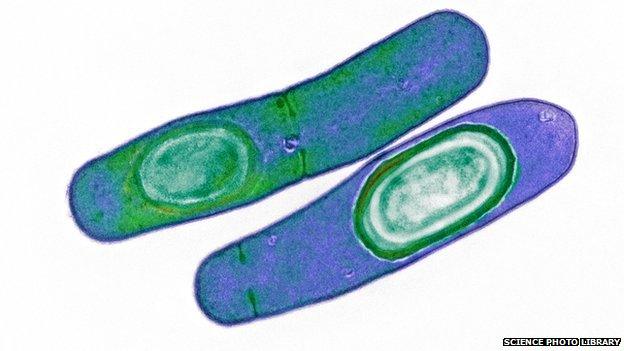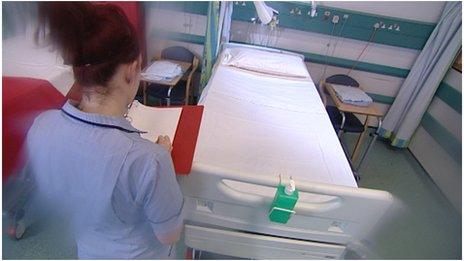Super bug linked to five deaths at Nottingham hospitals
- Published

The C. diff bacteria is resistant to many antibiotics
A superbug was linked to the deaths of five patients over a 12-month period, according to figures from an NHS Trust in Nottingham.
The number of cases of Clostridium difficile (C. diff) increased by a quarter, from 90 to 113, at the Queens Medical Centre and City Hospital.
Nottingham University Hospitals Trust said it had acted quickly to isolate all potential infection cases.
It also missed its target of having fewer than 98 incidents, in 2014.
'Resistant spores'
The trust said in a statement that it had "substantially reduced hospital-acquired C. diff in recent years."
In December, the hospitals experienced their first outbreak of linked cases of the superbug since January 2013.
It affected 12 patients on two wards and coincided with the re-emergence of a strain of the bug which caused more severe illness.
The trust said it increased levels of cleaning on the wards and used hydrogen peroxide to eradicate the "highly resistant" spores.
Prof Nigel Brown, the president of the Society for General Microbiology, said the bug can be resistant to antibiotics and is hard to contain.
"The problem with Clostridium difficile is that it forms spores which is very resistant to alcohol hand washes in hospitals.
"They are also resistant to drying so they can survive on surfaces for several months."
The trust reported nine C. diff related serious incidents between April 2014 and March, external, five of which were attributed to the death of patients.
- Published1 December 2014

- Published18 June 2015
